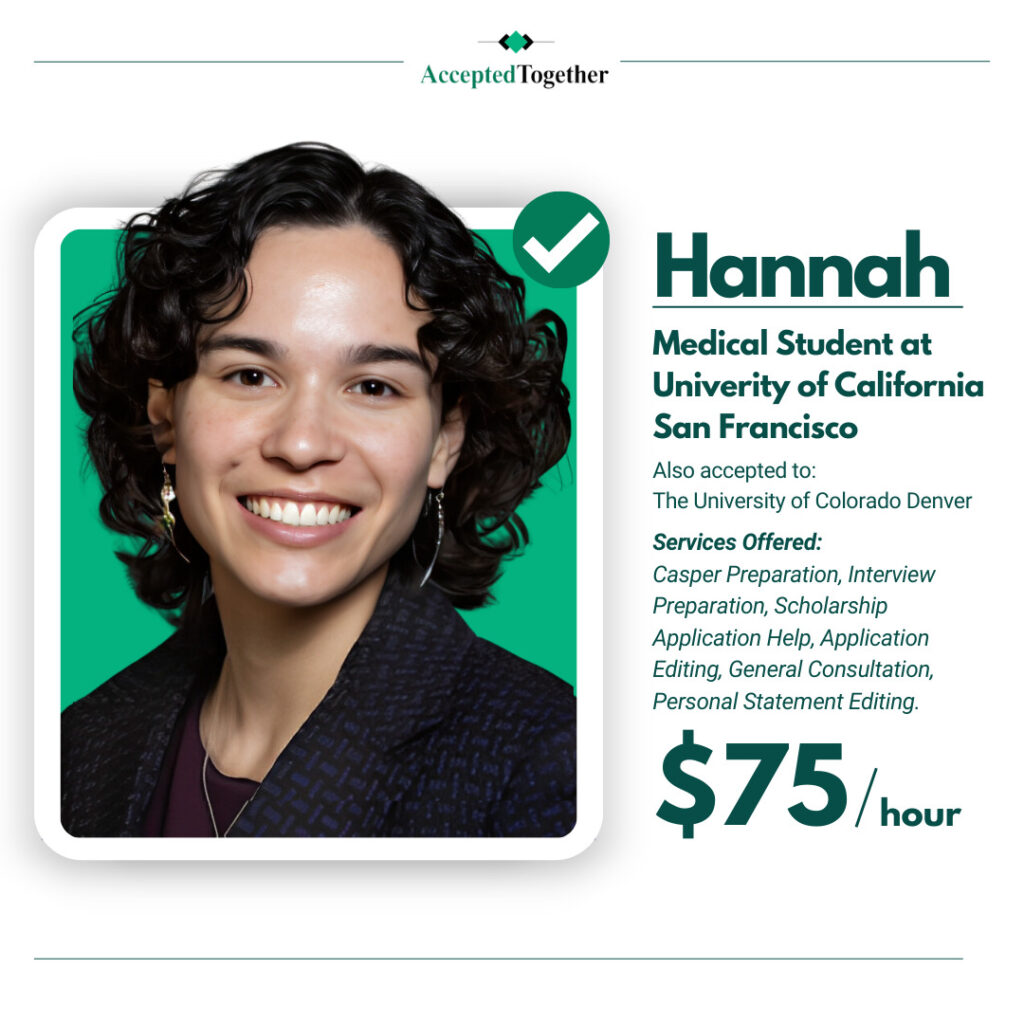Last updated on May 5th, 2025 at 09:36 am

Table of Contents
Introduction
Starting a journey in the medical field is often associated with youth, as the image of a fresh graduate diving into the world of healthcare seems almost ingrained in our perceptions. However, there’s an important question that challenges this conventional narrative: “Am I too old for medical school?” This question, subtle yet significant, comes from a demographic that has often been overlooked—mature individuals who are ready to embrace a new path.
As they face the rigorous academic demands and the lengthy road of medical education, they wonder if there’s still a place for them in this journey. This article delves into real-life stories, financial considerations, and the unique strengths that older students bring to medical school, ultimately questioning whether being too old for medical school is a myth or a reality.
Unveiling the Age Spectrum in Medical Schools
The path to becoming a doctor traditionally echoes with the energy of youth. However, the landscape of medical schools is gradually changing, with more older individuals stepping into the arena. These mature students, armed with a wealth of life experience, bring a different narrative to medical education. But the question remains: is the transition into medicine at a later stage in life filled with insurmountable challenges, or does it open up a rich vein of potential and expertise?
Older students are increasingly making their mark in medical academia. Their motivations often blend past experiences with a strong desire to contribute to the healthcare field. This creates a vibrant alternative to the typical youthful journey through medical school. The presence of older students enriches the learning environment, offering a unique blend of wisdom and enthusiasm that challenges the norms of age in education.
A Glimpse into Age Diversity: Instances of older individuals embarking on medical studies
The traditional image of the young, eager medical student is being complemented by a growing number of older individuals who are stepping into the world of medicine. These students, who come with a diverse range of life experiences, often bring a depth of understanding and a different perspective to their studies. The challenges they face are real, but their experiences also offer them unique advantages in their medical education.
For older students, the journey into medical school is not just about acquiring knowledge; it’s about integrating their life stories with their new learning. This integration often results in a richer, more nuanced approach to patient care and medical practice. The presence of older students in medical schools is a testament to the fact that age is not a barrier but an asset in the pursuit of a medical career.
Click to see hundreds of consultants who can mentor you:


Real-life Stories: Insights from those who chose medical careers later in life
Real-life stories of individuals who have entered the medical field later in life provide powerful examples of how age can be an asset rather than a limitation. These individuals often bring with them a wealth of experience from previous careers, which enriches their approach to medicine. Their stories are filled with determination, resilience, and a deep sense of purpose, challenging the notion that there’s a “right” age to pursue a medical career.
These mature students contribute not only their knowledge but also their life experiences to the medical school environment. They often serve as role models for younger students, showing that it’s never too late to pursue a passion for medicine. Their stories highlight that the journey into medicine is about more than just age; it’s about the desire to make a meaningful impact in the world of healthcare.
Weighing the Duration and Rigor of Medical Education
Deciding to pursue a medical career later in life requires careful consideration of both the time commitment and the physical and mental demands of medical education. Medical school is a long and rigorous journey, and for older students, the question is not just about whether they are too old, but whether they are prepared for the years of intensive study and practice that lie ahead.
Timeframe: Understanding the chronological investment required for medical school and residencies
The journey through medical school, from the first day of classes to the completion of residencies, is a significant time investment. For older students, this commitment requires a clear understanding of the years involved and a willingness to dedicate this time to their new career. The question of whether one is too old for medical school often comes down to whether they are prepared to align their future plans with this extensive educational journey.
Medical education is not just about the years spent in the classroom; it extends into residencies and specialized training, all of which demand time and dedication. For those entering medical school later in life, this timeline can seem daunting, but it’s important to remember that the value of the journey often lies in the dedication and passion one brings to it, regardless of age.
Physical and Mental Stamina: Evaluating one’s ability to handle the demands of the program
In addition to the time commitment, medical school requires a significant amount of physical and mental stamina. The rigors of medical education, including long hours, intense study sessions, and emotionally charged clinical experiences, can be challenging for students of any age. For older students, it’s important to assess whether they have the endurance to manage these demands.
The question of whether one is too old for medical school is not just about chronological age; it’s also about evaluating one’s physical and mental readiness to embark on this challenging journey. Mature students often bring a level of resilience that comes from years of experience, which can be a valuable asset in navigating the demands of medical school.
Financial Implications of Attending Medical School
Embarking on a medical school journey later in life often brings financial considerations to the forefront. The question “Am I too old for medical school?” intertwines with concerns about the costs associated with medical education and the potential financial return on investment. For older students, understanding the monetary implications is crucial in making an informed decision.
Tuition and Additional Costs: A look into the monetary investments of medical education
Medical education is a significant financial commitment. Tuition fees, along with additional costs for books, materials, and living expenses, can add up to a substantial sum. For older students, these costs may be particularly concerning, especially if they are balancing other financial responsibilities, such as supporting a family or saving for retirement. The decision to invest in medical school at this stage in life requires careful consideration of both the immediate costs and the long-term financial implications.
While younger students may view the cost of medical education as a long-term investment with many years of potential income ahead, older students might weigh these costs against the number of working years they have left. This financial balancing act is a critical aspect of the decision-making process for those considering entering medical school later in life.
The Financial Return: An analysis of potential income versus debt accumulation
The potential financial return of a medical career is often cited as a major incentive for pursuing this path. However, the reality is that medical education comes with significant debt, which can take years to repay. For older students, the question becomes whether the financial benefits of a medical career will outweigh the costs, particularly when considering the time needed to pay off student loans.
It’s important for older students to carefully evaluate the potential income from a medical career against the debt they will incur. While certain specialties in medicine can be highly lucrative, the timeline for achieving financial stability might be shorter for older individuals, making this a key factor in deciding whether to pursue medical school.
Balancing Personal and Professional Life
Deciding to enter medical school later in life often involves navigating the complexities of personal and professional responsibilities. For older students, balancing these aspects becomes a significant consideration, especially when thinking about how this decision will impact their family and social life.
Navigating Family Dynamics: Managing relationships and responsibilities while in medical school
For older students, the decision to attend medical school can have a profound impact on family dynamics. Balancing the demands of medical school with existing responsibilities, such as raising children or caring for aging parents, can be challenging. The rigorous schedule of medical school may mean missing important family events or struggling to maintain relationships.
Mature students must consider how their decision to attend medical school will affect their family life and whether they have the necessary support to manage these challenges. For some, the decision may involve significant sacrifices, but with careful planning and strong support systems, it is possible to balance both family and academic commitments.
The Social Aspect: Engaging with typically younger peers in the academic journey
Another important consideration for older students is how they will integrate socially with a cohort that is likely to be younger. Medical school is a collaborative environment, and much of the learning takes place in group settings. For older students, this can mean adapting to different social dynamics and finding common ground with younger peers.
While the age difference can present challenges, it also offers opportunities for mutual learning and mentorship. Older students can share their life experiences and professional insights, enriching the educational experience for everyone. Building relationships with younger peers can lead to a more fulfilling and supportive academic journey.
Medical Career Paths for Non-Traditional Students
The question “Am I too old for medical school?” isn’t just about whether you can handle the rigors of medical education—it’s also about finding a career path that aligns with your experiences and aspirations. Medicine offers a wide range of specializations and roles that can be particularly appealing to older students.
Specializations: Exploring various fields in medicine that may appeal to older students
Medicine is a diverse field with many specializations that may be especially suited to older students. For example, fields like psychiatry, geriatrics, and family medicine often benefit from the maturity and life experience that older students bring. These specializations involve a deep understanding of human behavior, life stages, and family dynamics, areas where older students may have a distinct advantage.
Choosing a specialization that aligns with one’s skills and interests can make the journey through medical school more rewarding. Older students can leverage their previous careers and life experiences to excel in areas of medicine where empathy, communication, and understanding are key.
Non-Clinical Roles: Investigating alternative career avenues in the medical field
For those who may be concerned about the physical demands of clinical practice, there are many non-clinical roles within the medical field that offer fulfilling career opportunities. Positions such as medical science liaisons, health policy analysts, medical writers, or healthcare administrators allow individuals to apply their medical knowledge in ways that may be more suited to their lifestyle and personal circumstances.
These roles can be particularly appealing to older students who are looking for a career in medicine but may prefer a position that allows for a better work-life balance. Non-clinical roles offer the chance to contribute to the medical field in meaningful ways without the same physical and time demands of clinical practice.
Support Systems and Resources
Embarking on the journey to medical school, particularly later in life, requires strong support systems and resources. For non-traditional students, these supports can make the difference between success and struggle in navigating the demands of medical education.
Identifying and Leveraging Support: Understanding the importance of mental and emotional backing
Mental and emotional support is crucial for older students who are balancing the demands of medical school with other life responsibilities. This support can come from family, friends, mentors, or professional networks, and it’s essential for maintaining well-being throughout the rigorous journey of medical education.
Having a solid support system helps non-traditional students manage stress, stay motivated, and navigate the challenges they encounter along the way. It’s important for older students to actively seek out and leverage these supports to ensure they have the resilience needed to succeed in medical school.
Utilizing Resources: Exploring available tools and organizations assisting non-traditional students in their journey
There are numerous resources available to assist non-traditional students in their medical school journey. Organizations, forums, and mentorship programs specifically designed for older students can provide valuable guidance and support. These resources can help with everything from financial aid and scholarships to networking opportunities and career counseling.
By taking advantage of these tools and organizations, non-traditional students can find the support they need to thrive in medical school. Utilizing these resources ensures that older students are not alone in their journey and that they have access to the information and support necessary to succeed.
Click to see hundreds of consultants who can mentor you:


Conclusion
The journey to becoming a doctor is a complex one, particularly for those who consider embarking on this path later in life. The question “Am I too old for medical school?” opens up a broader discussion about the challenges and opportunities that come with pursuing a medical career at any age. While age can bring unique considerations, it also brings a wealth of experience, determination, and perspective that can greatly enrich the field of medicine.
For non-traditional students, the decision to enter medical school involves careful consideration of financial implications, time commitments, personal responsibilities, and the physical and mental demands of the profession. However, with the right support systems, resources, and a clear understanding of the journey ahead, older students can not only succeed in medical school but also contribute significantly to the medical field.
The path to becoming a doctor is not defined by age but by the passion, commitment, and resilience that individuals bring to the profession. Whether you are fresh out of college or considering a career change later in life, the pursuit of medicine is a noble and rewarding endeavor that welcomes those who are ready to make a difference.
Frequently
Asked Questions
Yes, medical schools in both the U.S. and Canada accept applicants in their 30s, 40s, and even 50s. Age is not a barrier to acceptance. Many older applicants successfully gain admission each year, and medical schools value the life experience and maturity that older students bring. While around 5% of matriculants are over 30, there are successful students starting medical school even in their 50s
A low GPA doesn’t necessarily disqualify you from medical school. Admissions committees look at the whole picture, including trends in academic performance, your MCAT score, and your personal experiences. Consider post-baccalaureate or special master’s programs to improve your academic record and prove your readiness for med school
Many medical schools require that science prerequisites be completed within a recent timeframe, typically 3-5 years. If your coursework is outdated, you may need to retake these courses to meet the requirements. You can explore post-bacc programs designed for this purpose
No, your chances aren’t automatically lower because of your age. Admissions committees often value older applicants for their experience and perspectives. However, you’ll need to demonstrate your commitment and readiness, especially if you’ve been out of school for a while(
Medical school is challenging for everyone, but older students may face additional considerations, such as balancing family or financial responsibilities. That said, older students often benefit from life skills, resilience, and time management abilities, which can help them thrive(
It’s not necessary to focus on your age, but if your life experience has shaped your path to medicine, mentioning it can be advantageous. Focus on how your experiences make you a stronger, more empathetic candidate
Yes! Many non-traditional students without a science background succeed in medical school. You may need to complete prerequisite courses or attend a post-baccalaureate program to build the necessary foundation
Medical schools do not discriminate based on personal life choices such as starting a family. Many students successfully manage school while raising children, although it does require excellent time management and support systems(








